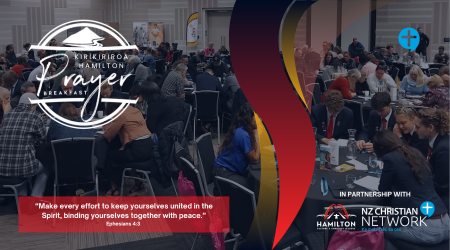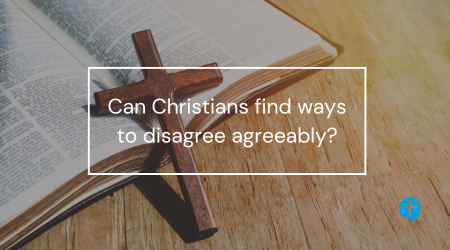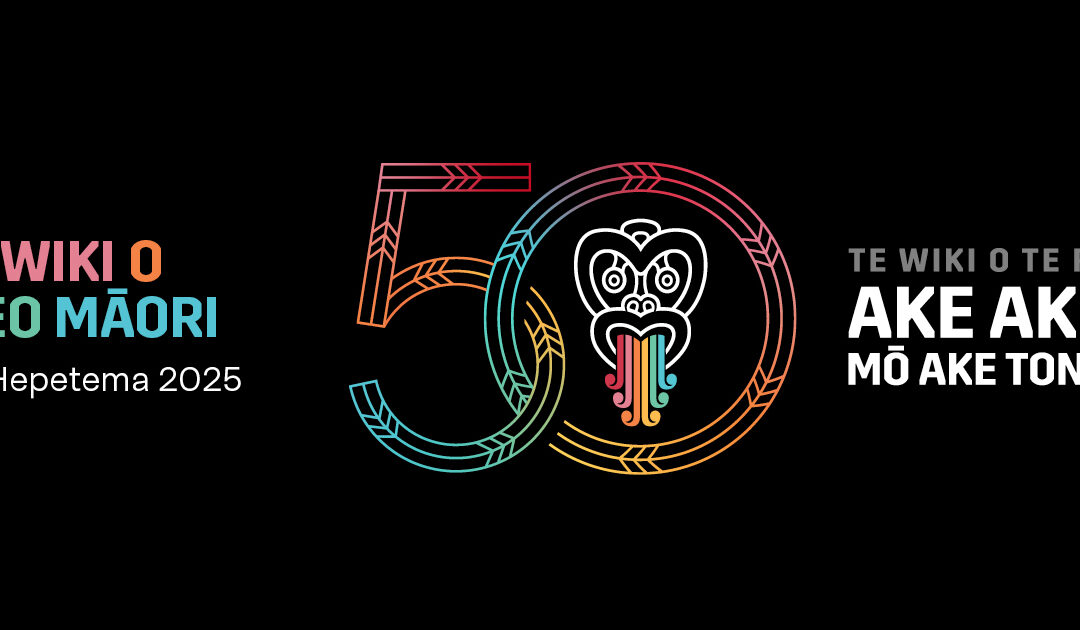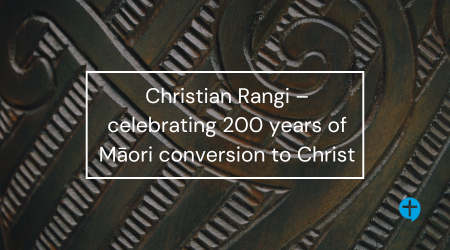
by Esther Tredoux | 22 Sep , 2025 | Articles, Christianity in New Zealand
On Tuesday 9 September NZ Christian Network together with Hamilton Pastors & Christian Leaders hosted the 6th annual Kirikiriroa Hamilton Prayer Breakfast at Claudelands Event Centre.
The theme was unity and was based on Ephesians 4:3 ‘Make every effort to keep yourselves united in the Spirit, binding yourselves together with peace.’
This year we had just over 450 people in attendance from 31 Churches and 19 different Churches purchased a Table of 10.
The event was opened with a Mihi by Tame Pokaia, a Kaumātua Maori Elder. Worship was lead by a combined team from various churches around Hamilton: New Life Hamilton, Activate, Equippers, The Village Church, Gateway and Hillcrest Baptist, which the team ‘officially’ named the ‘E4:3 Band’.
The four prayer areas were:
- Unity amongst Leaders and Churches
- Unity amongst our young people and within our families
- Unity in the Mission of God / Discipleship
- Prayer & Unity – Christian Churches transforming our city
As a follow the call for unity, the Hamilton Pastors & Christian Leaders are hosting a Kirikiriroa Unity Hui on Thursday 30 October 2025 from 10:00 – 11:30 and you can register your interest here.

by Dr Stuart Lange | 19 Sep , 2025 | About Christianity, Articles, Christianity in New Zealand, The Church
In recent times, fuelled by a constant flow of online opinion, polarised thinking and communication has become a growing trend in western societies, including New Zealand. There are so many hot-button issues: politics (both here and in America), social conservativism vs. social progressivism, biblical morality vs. sexuality and transgender ideologies, the right to life vs. abortion rights, Treaty issues, and the profound, heartfelt issues around Israel and Gaza. Feelings often run deep, and there is a tendency for people to despise and rubbish those people whose opinions they strongly disagree with. Sometimes, as with last week’s shocking assassination in the USA, clashes of values can give rise to totally unacceptable violence.
Among Christians too, and in churches, views can sometimes become polarised, and relationships and unity strained. And likewise in families, and among friends.
What advice can church leaders offer their people in such a context, and how can any Christian try to model ways of disagreeing that compromise neither the truth nor the love of Christ?
Here’s a few suggestions…
We must faithfully hold firm to the enduring truth and principles of God, as revealed in Jesus and the Scriptures, but do so in a way that also – expresses the love and grace of God (James 3:17)
– We must speak up for truth, when required, but do so with humility and gentleness rather than hostility and aggression, like a loud clashing cymbal (1 Cor. 13:1, 4-5)
– We should spend more time in prayer and the Word of God, and less online
– We should try to avoid mixing God’s enduring truth with worldly politics and merely human ideas
– We should spend less time fuming about other people’s wrong thinking, and more time praying
– We should try not to get distracted from the key priorities of loving God, following Jesus, loving and serving others, and sharing the Gospel
– We should neither hate nor write off those we disagree with, but pray for them – and if they are in our lives, try to build bridges with them (Rom. 12:14,17-18, 21)
– We can listen, ask questions, and try to understand better why people may hold the views they do. We should sincerely state or explain our own beliefs, but as ambassadors of Christ (2 Cor. 5:20) we should avoid toxic and destructive arguments – and sometimes it can be wisest to remain silent
May the grace of our Lord Jesus Christ be upon us all.
Kia tau, kia tatou katoa te atawhai o tou tatou Ariki o Ihu Karaiti.
Stuart

by Dr Stuart Lange | 7 Sep , 2025 | Articles, Marriage and Family
The percentage of New Zealanders marrying is decreasing, as a recent report highlighted.
Whether you’re married or single, we’re sure you can agree that strong marriages are very beneficial for those who are married, and for their children, and for wider society. Unfortunately, many marriages are not in great shape.
Of all people, Christians should aim to ensure their marriages are as healthy as possible. It is tragic when any marriage struggles or fails, but arguably even more so when it involves Christians.
Some key elements of a healthy marriage include…
-
- A very strong commitment to each other
- Absolute faithfulness, and trustworthiness
- Regularly praying together, and ensuring our faith is central rather than peripheral
- Continuing to take delight in each other, expressing love in words, manner, actions, and time spent together
- Always seeking our spouse’s wellbeing, rather than just our own (loving others as much as we love ourselves, Matt. 12:39)
- Doing our best to support and help each other, and to share our burdens
- Listening well, and always taking an interest in our spouse
- Speaking gently and peaceably with each other, rather than brusquely, irritably, or harshly (1 Cor. 13:4: Love is patient, love is kind)
- Respecting and encouraging each other, rather than putting each other down, and continually criticising
- Working on our own faults, instead of concentrating on our spouse’s faults
- Avoiding destructive behaviours such as bickering, coercion, fits of temper, or fights (Eph. 4:31: Get rid of all bitterness, rage and anger, brawling and slander, along with every form of malice)
- When we fall short, being quick to give or receive an apology, and then to move on with forgiveness, forbearance, and grace (Eph. 4:32: Be kind and compassionate to one another, forgiving each other, just as in Christ God forgave you)
— A few thoughts from the NZCN staff team (all married, and all still learning)

by Dale Campbell | 3 Sep , 2025 | About Christianity, Articles, Christianity in New Zealand
14-20 September is the 50th official Te Wiki o Te Reo Māori (Māori Language Week). It’s a highly visible and celebrated event each year, and many churches participate. It also a time that prompts a range of questions for some non-Māori (Pākehā). As a pākehā who has lived in this land for 20 years, I wanted to offer this reflection – pākehā-ki-pākehā (non-Māori to non-Māori) – to my friends who have sincere questions relevant to this issue.
The Martian observations
Imagine, if you will, a team of Martian socio-linguists – documenting the history of language in this land. For centuries, they would observe one language dominating, despite infrequent visits from those speaking other languages. During roughly the second half of the 18th century, they would observe a second language being not only welcomed and learned by speakers of the first language, but quickly becoming dominant as the number of these migrants spiked.
Today, these Martians would observe many kinds of human gatherings in this land, most of which are exclusively conducted in the second language. Some of these meetings would have as few as 5-6 words spoken in the first language. Some would be 2% first language, and 98% second language. A very small number of human gatherings would be around 98% first language. You could even find some educational spaces 100% first language.
In addition, these Martians would observe third, fourth, fifth, and then many other languages being spoken here. Many of these language speakers would also learn the second language. Many of them would have their own gatherings, almost exclusively in their third, fourth or other language.
My experience of language in this land
I was not even born as of 1972 when the Māori Language Petition was presented, or 1975 when Māori Language Day started. I was raised in Missouri in the United States and had a limited understanding of the history of migration and language back home. We never thought about using, for example, an Osage Nation greeting at work or church. When I migrated to these lands in 2005, Māori TV had been on air about a year. The resurgence of Te Reo Māori was rising.
I didn’t know much at all about the story of the Treaty (Te Tiriti), the missionary influence on it, or the nuances of when, where, and by whom it might be appropriate to speak the Māori language. As my first years living here ticked by, I noticed a growing trend in
gatherings where people would start the meeting or their talk by speaking for a minute (or several minutes) in Te Reo Māori. Nobody had ever really explained to me why this was being done, and I don’t recall having any particularly strong feelings about it, other than being particularly impressed when a non-Māori person did this.
Studying theology gave me stronger reasons for appreciating different cultures. Still, I hadn’t thought much about those questions of who, why, or where with regard to speaking in Te Reo. Over the years, working at a church with Mandarin-speaking Chinese and Korean churches in the afternoon, I had picked up a few greetings in Māori, Mandarin and Korean. Nothing even vaguely resembling fluency. Possibly some tokenism. No doubt some showmanship and a sprinkle of ego. But people seemed to appreciate when I made the effort to use their greetings. It felt like I was trying to be friendly and appreciative of their culture. That was good enough for me.
As the years rolled on, I learned more and was keen to get ‘on the waka (canoe)’. I learned to cobble together my own pepeha (a tribal form of introducing yourself). Not having grown up in these lands, I didn’t have to un-train my neural pathways from being formed to pronounce Whangārei as ‘wong-err-ay’. I would regularly get compliments on my pronunciation. I had become an advocate for Te Reo Māori.
From 2019-2022, as part of my work with the Justice Conference, run by Tearfund, I was meeting, listening to, interviewing, and giving speaking slots to many leading Māori Christian leaders. I attended a profoundly helpful haerenga (journey) with Karuwhā, a ministry beautifully helping people understand the story of the Treaty from a Christian perspective. These learning contexts were a profound privilege. I learned, most of all, to try to put my own thinking on pause and not make assumptions about what Māori think or believe. I learned – at least a bit! – to listen.
The experience of Māori I’ve listened to
As I listened over cups of coffee, to speakers at conferences, on zoom calls, podcasts, interviews and articles. A clear picture emerged. The Martian data we imagined above is merely quantitative. For Māori, the qualitative feeling of the story is one marked by pain, loss, hope and determination.
Part of the rapid dominance of the English language was simple demographics and population shifts. But other times this was mixed with racial superiority and violent oppression. Loss of language was mixed in with loss of land and livelihoods. It’s not my story to tell, but it is part of the shared story of this land, which is important to understand.
Many of my Māori friends are frustrated when non-Māori complain about the use of Te Reo Māori. They don’t see English as a ‘neutral’ and ‘normal’ language. They long for their language and culture to survive and flourish. A big light-bulb was switched on for
me when my good friend TeRata told me that the Māori language will remain an endangered language – until spoken in a certain percentage of Māori households. Many of my Māori friends find it a bit ironic when some say Māori language is being ‘rammed down our throats’, given that in some places and times in our history it was banned.
The experience of those freshly arriving
I also listen to friends from other cultures, who have a range of interesting perspectives on these matters. My Samoan, Tongan, Fijian and other Pasifika friends are almost always keen to support the resurgence of the Māori language but can sometimes feel their own efforts to preserve and speak their languages are at times overshadowed by what often seems like a greater interest in Te Reo Māori.
And then there are people arriving each week from places like Russia, Qatar, South Korea, Peru, China, Scotland and many others. Through hard work and study, many of these migrants are already fluent or at least conversational in English. Many others go to ESOL (English Speakers of Other Languages) classes. Some may have learned much of the Treaty and language story of this land. Others are just starting the journey.
NZSL is also our third official language here. Churches – particularly medium to smaller ones – often find themselves uncertain or under-prepared to engage with the deaf community.
Two biblical convictions in tension
Having those perspectives in mind hopefully helps us when we return to the tricky questions of how to speak, pray, plan, worship and fellowship together in this land. It helps to remember that some people are just starting this journey and their questions are not always born of racism. And yes, it helps to know that not all of our questions are helpful to those directly affected by them.
When it comes to worship services, I’ve had strong interest in leading, planning and studying it. On the topic of language in gathered worship, I find that there are two biblical convictions that are often in tension with one another:
1. The Gospel is for every nation, culture, and language. The Bible is a cross-cultural document. God’s people are drawn together from every tongue tribe and nation. While at one level it’s perfectly acceptable to worship in language-specific groups, it’s a great gospel instinct to want our worship gatherings to display the cross-cultural reconciliation that the Gospel brings.
2. Gathered worship should be intelligible for all. Whatever one makes of the gift of tongues, there seems to be a principle in 1 Corinthians 14 that worship must be orderly and other languages translated so that people not only praying in spirit (14:2, 14-15) but with the understanding of their minds (14:15, 19). My own personal view (shared by many of my Māori friends) is that translating Māori
prayers or readings as much as possible is a great way for people to learn or at least join in good conscience with the ‘Amen’ (Āmine). It’s helpful when people understand that often used waiata (songs) like He Honore come straight from Luke’s Gospel.
Going forward…
What do we make of all this? I offer no commandments from on high. I’m just a guy trying to love and learn in this land. Each one must follow their own conscience. I’ve shared my experience, reflected on what I understand to be the experience of others. Here are some things I want to try to do this Te Wiki o Te Reo Māori – and every week.
· I want to respect, honour and value other languages. I will try not to be annoyed when people are speaking in a language I don’t understand. When I hear someone’s so-called ‘broken English’ I will remind myself that they are conversational in at least one more language than I am!
· I want to be patient with others. I will try to accept others who see things differently. I will try to honour their conscience and not accuse them of racism for merely having questions.
· I want to try without showing off. I will try to do the labour of love of working at my pronunciation (roll those r’s!) and learn some new kupu (words).
· I want to tautoko (support) my Māori friends who are working hard for the flourishing of their people and language. I will lean into initiatives like Te Wiki o Te Reo Māori, and cheer on Christian Māori language schools like Te Wānanga Ihorangi.

by Guest Author | 22 Aug , 2025 | About Christianity, Articles, Christianity and Social & Moral Issues
Last week the champion of New Zealand’s End of Life Choice Act, David Seymour, publicly shared an email from someone who praised him for our country’s new euthanasia statistics. The emailer correctly believed that Seymour would appreciate hearing that the death tally, as of 30 June, was 1,307. Predictable comments followed, applauding euthanasia as a human right, as compassionate, and as ending suffering. Then came this one: “I’ve often wondered whether it should be offered to whole-life prisoners too. Would need to be carefully monitored, but might free up prison space.” Despite unmasking euthanasia’s utilitarian core, positive reactions to that comment outnumbered others two to one.
Currently, Kiwis who want medical help committing suicide need two doctors to affirm that they are competent to consent, declining from a condition expected to kill them within 6 months, free from coercion, and experiencing unbearable suffering. The bar is lower than it sounds. “Unbearable suffering,” for one person who underwent euthanasia, was simply losing the ability to enjoy nature. Another did not speak English, had no interpreter, and likely had dementia; consent, apparently, was just assumed. The shortest time between application to death has been two days — hardly time for the physician to “do their best,” as vaguely expressed in the legislation’s toothless words, to detect coercion.
Oregon, the first US state to legalise assisted suicide in 1994, has not legalised voluntary euthanasia. Eligible patients are prescribed a lethal dose, but physicians cannot kill them. New Zealand has legalised both practices.
Belgium, despite loose eligibility criteria that doesn’t require assent at time of death, still requires the referral of patients to a palliative care team. Unlike euthanasia, palliative care is not fully funded in New Zealand; 22% of those euthanised haven’t received the benefits of palliative care.
Euthanasia legislation overseas typically requires a cool-down period, recognising suicidal patients often change their minds. New Zealand has no cool-down requirement.
Those driving our euthanasia legalisation admit that some safeguards were included only to get the euthanasia bill over the line, and they hope to remove some. Seymour used his post last week to plug a bill that would expand access to those without a 6-month prognosis, making many with degenerative conditions eligible. He takes his lead from Canada, where patients with non-terminal conditions can already end their lives, and where (from 2027) mental illness will also qualify.
Our Ministry of Health also resists increasing safeguards or improving oversight. Two of the original three members of the End of Life Review Committee, which reviews death reports, found missing, conflicting, and disturbing information. The Ministry brushed off their concerns; if information is missing, it said, “assume nothing is wrong.”
Predictably, the Ministry’s 2024 review of the End of Life Choice Act said it is “largely operating well.” Its recommendations for “improvements” involve limiting physicians’ conscientious objection rights, allowing doctors to proactively offer euthanasia to patients, and requiring all care homes and hospices to allow euthanasia onsite – or lose their registration.
Far from endorsing free choice, the Ministry of Health rejects outright some viewpoints. It reported that “some communities’ tikanga (customary values) are not aligned with or supportive of assisted dying,” and that “some held the view that the wairua (spirit) belongs to God, and the body should be allowed to perish naturally.” Regarding Māori whanau who consider euthanasia to be the same as suicide, it writes “that this points to a lack of awareness and acceptability of assisted dying within Māori communities and an urgent need for assisted dying to become familiar, understood, and accepted.”
A Private Member’s Bill is in the tin, which, if selected and passed, would require our health system to have a clear plan for palliative care and better funding for it. That bill will make us ask: Are we committed to helping people experience the best death, or are we satisfied with what’s most expedient? If it’s the former, let’s advocate for palliative care to be universally available so that every Kiwi has that choice.
Read Maxim Institute’s Discussion Paper: “Interrogating Choice: Euthanasia and the illusion of autonomy”
– Maryanne Spurdle

by Dr Malcolm Falloon | 8 Aug , 2025 | About Christianity, Articles, Christianity in New Zealand
This year marks 200 hundred years since the baptism of Christian Rangi, the first Māori baptised by the missionaries as a Christian convert. Henry Williams, who conducted the baptism on 14 September 1825, described Rangi as a “brand plucked from the burning” (Zech. 3:2), pointing to the providential nature of Rangi’s conversion.
Rangi was baptised on his death-bed and died the next day from the ravages of tuberculosis. But, despite his death, the missionaries rejoiced in way that Rangi had come to faith over the previous eighteen months, culminating in his choice of baptismal name: Karaitiana (Christian). For Rangi, taking the name of Christ sealed his identitification with Jesus as Lord and Saviour.
For many Māori at that time, the idea that a Māori could be converted from the traditions of his ancestors was considered an impossibility: Māori had their own atua and had no need for “the white man’s God”. Many Europeans too considered the whole missionary enterprise a complete waste of time and money.
Yet despite those prevailing views, Rangi received the missionaries each Sabbath at his family settlement at Waitangi and listened to their message of a heavenly country where there was no more sickness or pain. Early on, Rangi had proposed an experiment: he would plant some kumara with the “tapu” and some without, declaring that the one that grew best would indicate the true God. It wasn’t long before Rangi had set aside entirely all the chiefly requirements of tapu. It was a move that in Māori eyes dangerously exposed Rangi to spiritual attack.
Rangi persisted in seeking the God of whom the missionaries spoke and, with their encouragement, he began to pray for a new heart within. It was his experience of answered prayer that led to his public profession of faith. He told the missionary Richard Davis that “his heart was very full of love to Jesus Christ, that he was very ill in his body but that he hoped to be soon in the good place.”
Four weeks after this testimony to answered prayer, Rangi had a most extraordinary experience of God’s grace, what the old Puritan theologians might term “an unconvenanted blessing”. He sent a message to Davis asking him to visit. When Davis arrived, Rangi told him that he had had a dream of going to heaven and being welcomed there by Jesus himself: “He told me that he had had a dream in which he thought he was in heaven with Jesus Christ. He also told me that the Spirit of the great God spoke very much to his heart.” Davis went on to note that Rangi’s countenance “spoke the inward peace of his mind and set the seal of truth on all he said”. This is why Rangi taking the baptismal name of Karaitiana was so significant. It cemented his personal allegiance and loyalty to Christ.
Although Christian Rangi died the day after his baptism, his testimony set the pattern for many Māori to follow over the coming years, as upwards of 90% of the entire Māori population came to profess the Christian faith. Upon his death, a comet had appeared in the sky that his family took as confirmation that Rangi was indeed making his way to heaven. His brothers told the missionaries they wanted to join Rangi in heaven and had begun to pray themselves for a new heart within.
Christian Rangi’s testimony continues to echo down through the years. In an age that often dismisses and disparages the reality of Christian conversion, may Rangi’s example inspire many to pray in the same way, and that they too might come to know the transforming power of te Rongopai o Ihu Karaiti, the Good News of Jesus Christ.











